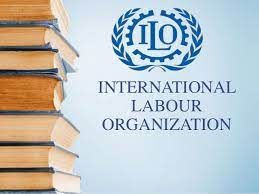Delegates at the 112th International Labour Conference (ILC) in Geneva, Switzerland have taken the initial step towards what would be the maiden international standard governing biological hazards in the world of work.
Before now, there is currently no international regulation focused on biological hazards in the working environment.
The delegates agreed that the consultations on the initiative will continue at next year’s ILC, during the second sitting of the Standard-Setting Committee on Biological Hazards.
The ILO projected that the discussions could result in a new Convention and/or Recommendation, which would be the first international labour standard to be adopted since the access to a safe and healthy working environment was elevated to a Fundamental Principle and Right at Work.
Speaking during the closing ceremony of the ILC, the Director-General of the ILO, Gilbert F. Houngbo, praised the intense, productive and rich” debates that had underpinned the ILC’s discussions.
The Director-General told the delegates: “We face persistent insecurity and inequality as well as informality in the world”, adding that the discussions “confirmed one critical aspect. We must act; not doing so is not an option.”
“You have responded to my call… to make social justice progress the basis for sustainable peace, shared prosperity, equal opportunities and a just transition”, he added.
Also, the ILC approved a resolution put forward by the General Discussion Committee on Decent Work and the Care Economy. The resolution includes a request for the Director-General to prepare a plan of action on decent work and the care economy to support the Committee’s conclusions and to take those conclusions into account in future ILO programme and budget proposals.
The conclusions provide a common understanding of the care economy, its guiding principles and actors. They affirm that labour in the care economy is not a commodity and that all care workers should enjoy decent work. They also state that a well-functioning and robust care economy plays a critical role in building crisis resilience as well as leading to social and economic development. The conclusions also provide policy guidance recommendations and reaffirm the global leadership role of the ILO in advancing decent work in the sector at global, regional and national level.
In addition, the Conference adopted the conclusions of the Recurrent Discussion Committee on Fundamental Principles and Rights at Work (FPRW). The conclusions highlighted that the FPRW were more needed and relevant than ever. They provide guidance for the ILO and its constituents to effectively respect, promote and realize these principles and rights in an era of rapid change in the world of work, including demographic, environmental and digital transitions. The conclusions identify four areas of focus for policy action: strengthening the governance of labour markets; freedom of association and social dialogue, including collective bargaining; formalization and sustainable enterprises; and equality and inclusion.






